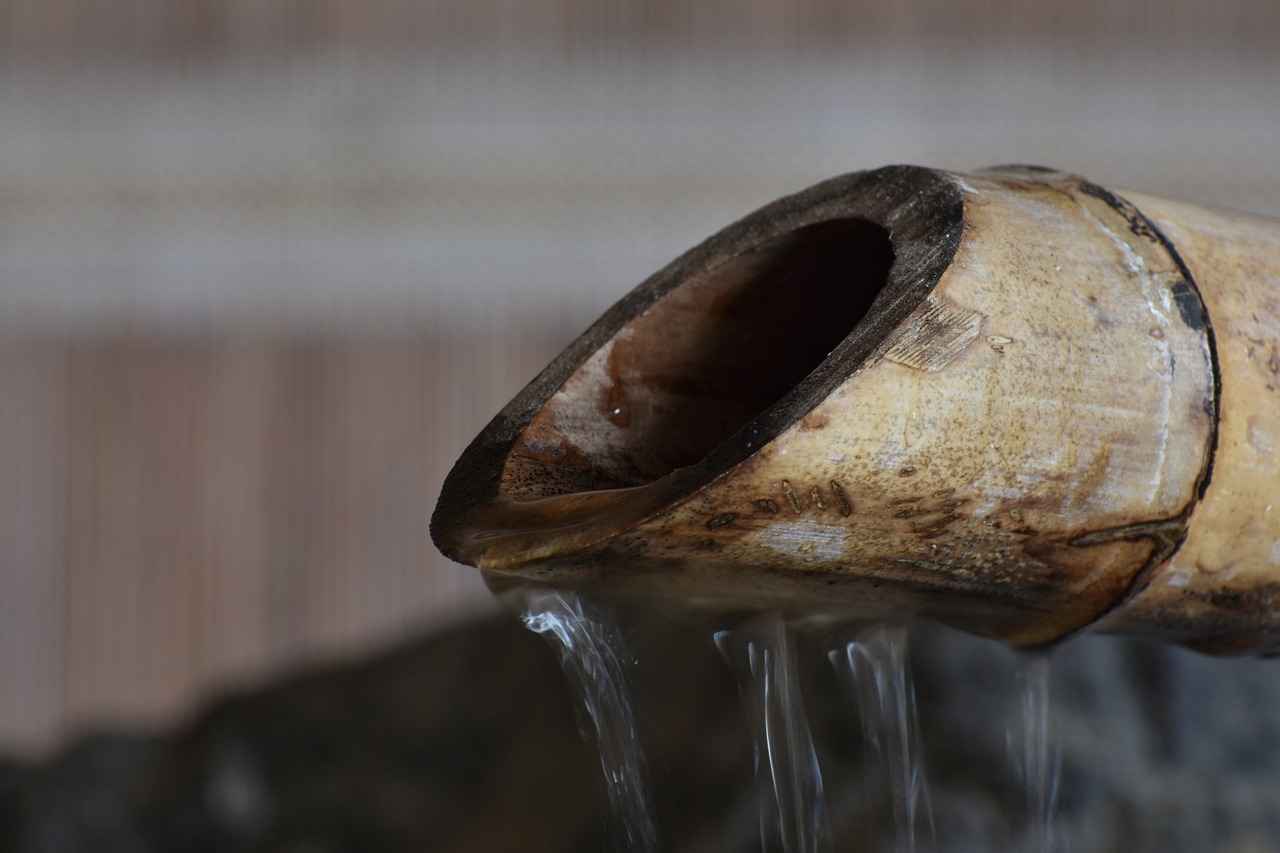This article explores the most popular natural materials used in bedding sets, highlighting their benefits, characteristics, and why they are preferred for a comfortable sleep experience.
When it comes to choosing bedding, the material plays a crucial role in ensuring a restful night’s sleep. Natural materials are often favored for their breathability, comfort, and eco-friendliness. In this article, we will delve into some of the most sought-after natural materials used in bedding sets.
- Cotton: Known for its softness and durability, cotton is a classic choice. It is breathable, easy to care for, and available in various thread counts, making it versatile for different preferences.
- Linen: Made from flax fibers, linen is celebrated for its luxurious feel and unique texture. It is moisture-wicking and becomes softer with each wash, enhancing its appeal.
- Bamboo: An eco-friendly alternative, bamboo bedding is naturally antibacterial and incredibly soft. It is also known for its moisture-wicking properties, making it ideal for warm sleepers.
- Silk: Offering an elegant touch, silk bedding is smooth and luxurious. It is gentle on the skin and hair, reducing friction and promoting a healthy sleep environment.
- Wool: Perfect for colder climates, wool provides warmth and insulation. Its natural thermal regulation helps maintain a comfortable body temperature throughout the night.
- Hemp: Known for its strength and sustainability, hemp bedding is resistant to mold and mildew, making it a healthy choice for sleep.
Each of these materials offers unique benefits, making them popular choices for bedding sets. When selecting bedding, consider factors such as personal comfort, maintenance, and environmental impact to find the perfect fit for your sleep needs.
In conclusion, choosing the right natural material for your bedding set is essential not only for comfort but also for promoting a sustainable lifestyle. By understanding the characteristics and benefits of these materials, you can make an informed decision that enhances your sleep experience.

Cotton: The Classic Choice
Cotton is one of the most popular natural fibers used in bedding, revered for its exceptional qualities that enhance sleep comfort. With its softness, breathability, and durability, cotton has become a staple in households around the world. This article delves into the reasons why cotton is a preferred choice for bedding sets.
One of the standout features of cotton is its remarkable softness. This natural fiber feels gentle against the skin, providing a cozy and inviting sleep environment. Unlike synthetic materials, cotton allows for natural movement, ensuring that you remain comfortable throughout the night.
Another significant advantage of cotton is its breathability. Cotton fibers allow air to circulate, which helps regulate body temperature. This is particularly beneficial for individuals who tend to sleep hot, as it prevents overheating and promotes a cooler sleeping experience. In contrast to other materials, cotton’s moisture-wicking properties help to absorb sweat, keeping you dry and comfortable.
When it comes to durability, cotton stands out as a resilient option. High-quality cotton bedding can withstand frequent washing and maintain its shape and softness over time. This longevity makes it a worthwhile investment for consumers looking for bedding that lasts.
Moreover, cotton is incredibly easy to care for. Most cotton bedding can be machine washed and dried, making maintenance a breeze. This convenience is a significant factor for busy households that prioritize practicality.
In conclusion, cotton remains the classic choice for bedding due to its combination of softness, breathability, and durability. Its ease of care and comfort make it a favorite among consumers seeking a restful night’s sleep. Whether you prefer crisp percale or soft sateen, cotton offers a versatile range of options to suit various preferences.

Linen: The Luxurious Option
Linen, derived from the fibers of the flax plant, is celebrated for its luxurious feel and distinctive texture. Unlike many other fabrics, linen possesses a unique ability to breathe, making it a highly sought-after material for bedding. Its moisture-wicking properties allow it to absorb and release moisture efficiently, providing a comfortable sleep environment.
One of the most appealing aspects of linen is its durability. Over time, linen becomes softer and more comfortable with each wash, enhancing its appeal as a bedding option. This natural fiber is not only strong but also resistant to fading, ensuring that your bedding maintains its beauty over the years.
| Benefits of Linen Bedding | Description |
|---|---|
| Temperature Regulation | Linen’s breathable fibers allow for excellent airflow, keeping you cool during the summer and warm in the winter. |
| Hypoallergenic Properties | Resistant to dust mites and mold, linen is an ideal choice for those with allergies. |
| Stylish Appearance | Linen offers a relaxed, natural look that can enhance the aesthetics of any bedroom. |
When it comes to care and maintenance, linen is relatively low-maintenance. It is recommended to wash linen bedding in cold water and air dry to maintain its quality. With proper care, linen can last for many years, making it a wise investment for your home.
In conclusion, choosing linen for your bedding set not only provides a luxurious sleeping experience but also contributes to a healthier sleep environment. Its unique properties make it a top choice for anyone seeking comfort, style, and sustainability in their bedding.
Benefits of Linen Bedding
Linen bedding is becoming increasingly popular among consumers looking for comfort and style in their sleep environment. Its unique properties make it a desirable choice for many. Below, we explore the benefits of linen bedding in detail.
- Temperature Regulation: One of the standout features of linen is its ability to regulate temperature. The natural fibers allow for excellent airflow, which helps to keep you cool during hot summer nights and warm during colder months. This thermoregulation ensures a comfortable sleeping experience throughout the year.
- Hypoallergenic Properties: Linen is naturally resistant to dust mites, mold, and other allergens, making it an ideal choice for those with allergies or sensitive skin. Its breathable nature helps maintain a cleaner sleeping environment, promoting better health and well-being.
- Durability: Linen is known for its strength and durability. Unlike other fabrics, it can withstand numerous washes without losing its quality. Over time, linen becomes softer and more comfortable, enhancing the overall sleep experience.
- Stylish Aesthetic: The relaxed and elegant appearance of linen bedding adds a touch of sophistication to any bedroom. Its natural texture and earthy tones create a serene atmosphere that promotes relaxation and tranquility.
- Eco-Friendly Choice: Linen is made from flax, a plant that requires less water and fewer pesticides compared to cotton. Choosing linen bedding is not only a personal comfort choice but also a sustainable option that benefits the environment.
In summary, linen bedding offers a multitude of advantages, from its temperature-regulating properties to its hypoallergenic nature and stylish appearance. If you’re seeking a bedding option that combines comfort, durability, and eco-friendliness, linen is undoubtedly a top contender.
Temperature Regulation
is a critical aspect of achieving a restful night’s sleep, and linen bedding excels in this area due to its unique properties. Made from the fibers of the flax plant, linen is renowned for its exceptional breathability and moisture-wicking abilities. This means that during the hot summer months, linen allows for excellent airflow, which helps to keep you feeling cool and comfortable.
Conversely, in the colder winter months, linen also provides warmth by trapping body heat while still allowing moisture to escape. This dual capability makes linen an ideal choice for bedding throughout the year, ensuring that you remain comfortable regardless of the season. Unlike synthetic materials that can often lead to overheating, linen’s natural fibers promote a balanced sleeping environment.
Moreover, the temperature-regulating properties of linen contribute to its hypoallergenic nature. It is resistant to dust mites and mold, making it a great option for individuals with allergies. This means that not only does linen help maintain a comfortable temperature, but it also promotes a healthier sleep environment.
In addition to its functionality, linen bedding has a distinct aesthetic appeal. Its natural, relaxed look adds a touch of sophistication to any bedroom decor. As it ages, linen becomes even softer and more inviting, enhancing both its comfort and visual appeal.
In summary, choosing linen bedding for its capabilities is a wise decision for anyone seeking a comfortable and stylish sleeping experience. With its ability to keep you cool in the summer and warm in the winter, linen truly stands out as a luxurious and practical option for year-round use.
Hypoallergenic Properties
Linen is an exceptional choice for bedding, particularly for those who suffer from allergies or sensitivities. Its natural composition and unique characteristics make it highly resistant to common allergens, such as dust mites and mold. This resistance is largely attributed to the structure of linen fibers, which are less hospitable to these irritants compared to many other fabrics.
One of the key benefits of linen is its breathability. The fibers allow for excellent airflow, which helps to keep the bedding dry and less prone to moisture accumulation. This is crucial because moisture can create an ideal environment for mold and dust mites to thrive. By choosing linen bedding, individuals can significantly reduce their exposure to these allergens, leading to a healthier sleep environment.
Furthermore, linen’s moisture-wicking properties also contribute to its hypoallergenic nature. It can absorb moisture without feeling damp, which helps in maintaining a dry sleeping surface. This is particularly beneficial for those who tend to sweat during the night, as it minimizes the likelihood of mold growth and provides a more comfortable sleeping experience.
Additionally, linen is naturally resistant to bacteria. This quality not only enhances its longevity but also ensures that your bedding remains fresher for longer periods. For allergy sufferers, this means less frequent washing is required, which can further reduce exposure to allergens that may be released during the washing process.
In conclusion, the hypoallergenic properties of linen make it an ideal bedding choice for anyone seeking a healthier sleep environment. Its natural resistance to dust mites, mold, and bacteria, combined with its breathability and moisture-wicking capabilities, ensures that you can enjoy a peaceful and allergy-free night’s sleep.
Care and Maintenance of Linen
Caring for linen bedding is essential to ensure its longevity and maintain its luxurious feel. Linen, derived from the flax plant, is celebrated for its durability and breathability. However, to fully enjoy these benefits, proper care and maintenance are crucial.
Firstly, it is important to wash linen bedding gently. Use a mild detergent and select a gentle cycle on your washing machine. Avoid using bleach or harsh chemicals, as they can damage the fibers. Washing linen in cold or lukewarm water helps to preserve its quality. If you prefer hand washing, soak the linen in water mixed with a gentle detergent, then rinse thoroughly.
After washing, air drying is the best method to maintain the integrity of linen. Hang the bedding outside or lay it flat on a clean surface. Direct sunlight can fade the fabric, so consider drying in a shaded area. If you must use a dryer, opt for a low heat setting to avoid shrinkage and damage.
Once your linen bedding is dry, it may feel a bit stiff. To soften it, simply iron it on a medium setting while it is still slightly damp. This not only smooths out wrinkles but also enhances the texture, making it more inviting for sleep.
To keep your linen bedding looking fresh, it’s advisable to rotate your sets regularly. This practice helps prevent wear and tear on a single set and extends the overall lifespan of your bedding. Additionally, storing linen in a cool, dry place will protect it from moisture and pests.
In conclusion, with gentle washing, air drying, and proper storage, you can maintain the quality of your linen bedding for years to come. Embracing these simple care practices will ensure that you continue to enjoy the luxurious comfort and aesthetic appeal of linen.

Bamboo: The Eco-Friendly Alternative
Bamboo bedding has rapidly become a favored choice among environmentally conscious consumers, thanks to its numerous sustainable and eco-friendly attributes. This natural material is derived from the bamboo plant, which is known for its fast growth and minimal resource requirements. In this section, we will delve into the various benefits of bamboo bedding and why it is an excellent alternative to traditional bedding materials.
One of the standout features of bamboo fabric is its natural antibacterial properties. The bamboo plant contains a substance called bamboo kun, which inhibits the growth of bacteria and fungi. This means that bamboo bedding can help maintain a cleaner sleep environment, reducing the risk of allergens and irritants that could disrupt your sleep.
Bamboo bedding is renowned for its incredibly soft texture, often compared to the feel of silk or cashmere. This luxurious softness provides a comfortable sleeping experience, making it an ideal choice for those who prioritize comfort in their bedding. Additionally, the fabric is breathable and moisture-wicking, which helps regulate body temperature and keep you cool throughout the night.
Bamboo is one of the most sustainable materials available. It grows rapidly, requires less water than cotton, and does not need pesticides or fertilizers to thrive. This makes bamboo bedding a responsible choice for those looking to reduce their environmental footprint.
Despite its softness, bamboo bedding is also surprisingly durable. With proper care, it can last for many years, making it a wise investment. Washing bamboo bedding is straightforward, as it can typically be machine washed on a gentle cycle and tumble dried on low heat.
In summary, bamboo bedding is an excellent eco-friendly alternative that offers a combination of comfort, durability, and sustainability. Its natural properties make it a healthier choice for your sleep environment while contributing positively to the planet. If you are in the market for new bedding, consider making the switch to bamboo for a luxurious and responsible sleep experience.
Environmental Benefits of Bamboo
Bamboo is a remarkable plant that has gained significant attention for its numerous environmental benefits. As a fast-growing species, it can reach maturity in just three to five years, making it one of the most sustainable resources available. Unlike traditional timber, which can take decades to grow, bamboo’s rapid growth cycle allows for frequent harvesting without depleting the ecosystem.
One of the most notable advantages of bamboo is its ability to thrive in various climates with minimal water and no need for harmful pesticides. This characteristic not only conserves water resources but also reduces the environmental impact associated with chemical fertilizers and pesticides used in conventional agriculture. Furthermore, bamboo’s deep root system helps prevent soil erosion, promoting soil health and stability.
Additionally, bamboo plays a crucial role in carbon sequestration. It absorbs carbon dioxide at a rate significantly higher than many tree species, making it an effective tool in combating climate change. By planting bamboo, we can contribute to reducing greenhouse gases in the atmosphere, thereby supporting efforts to mitigate global warming.
Another important aspect of bamboo is its versatility. It can be used to produce a wide range of products, from flooring and furniture to textiles and paper. This versatility not only offers consumers sustainable alternatives to conventional materials but also supports local economies by providing jobs in bamboo cultivation and processing.
In summary, the environmental benefits of bamboo are extensive. Its rapid growth, low resource requirements, and ability to sequester carbon make it an excellent choice for those seeking eco-friendly options. By choosing bamboo products, consumers can make a positive impact on the planet while enjoying the unique qualities this remarkable plant has to offer.
Comfort and Breathability
Bamboo fabric has rapidly become a favored choice in the world of bedding due to its remarkable comfort and breathability. As more consumers seek out materials that enhance their sleeping experience, bamboo stands out for several compelling reasons.
One of the most notable features of bamboo fabric is its moisture-wicking ability. This means that it effectively draws moisture away from the body, helping to keep you dry throughout the night. For individuals who tend to sleep hot or live in warmer climates, this property is particularly beneficial. Unlike traditional cotton, which can retain moisture, bamboo fabric allows for better airflow, ensuring that you remain cool and comfortable.
Additionally, bamboo is inherently breathable. The natural structure of bamboo fibers promotes air circulation, which helps to regulate body temperature. This is especially important for those who experience fluctuations in temperature during sleep. The breathable nature of bamboo fabric not only contributes to a more comfortable sleep environment but also helps in reducing the likelihood of overheating.
Furthermore, bamboo fabric is known for its softness and luxurious feel. Many users report that it feels smoother against the skin compared to other materials, which enhances the overall sleeping experience. This softness, combined with its moisture-wicking and breathable properties, makes bamboo an ideal choice for those who prioritize comfort in their bedding.
In addition to its physical properties, bamboo fabric is also an environmentally friendly option. Bamboo is a sustainable resource that grows quickly and requires minimal water and pesticides, making it a great choice for eco-conscious consumers.
In conclusion, bamboo fabric’s moisture-wicking and breathable properties make it an excellent option for those who tend to sleep hot. Its combination of comfort, softness, and sustainability positions it as a leading choice for modern bedding.

Silk: The Elegant Luxury
Silk bedding is often regarded as the epitome of luxury, bringing an air of sophistication and elegance to any bedroom setting. Its smooth texture and natural sheen not only enhance the aesthetic appeal of your sleeping space but also contribute to a truly exquisite sleeping experience.
One of the standout features of silk bedding is its incredible softness. Unlike many other materials, silk has a unique ability to create a gentle caress against the skin, making it a favored choice for those who prioritize comfort. The luxurious feel of silk is complemented by its natural temperature-regulating properties. Whether it’s a warm summer night or a chilly winter evening, silk helps to maintain an optimal sleeping temperature, ensuring a restful night’s sleep throughout the year.
Moreover, silk bedding is not just about luxury; it offers significant skin and hair benefits. The smooth surface of silk reduces friction, which can lead to less irritation for the skin and less frizz for the hair. This makes silk a popular choice for individuals who are conscious about their beauty routines. It is known to help retain moisture in the skin and hair, promoting a healthier appearance.
When it comes to care, silk bedding does require some attention. It is advisable to wash silk gently, using mild detergents and cool water to preserve its luster and softness. Avoiding harsh chemicals and direct sunlight will help maintain the fabric’s quality over time.
In conclusion, investing in silk bedding not only elevates the style of your bedroom but also enhances your overall sleeping experience. With its combination of elegance, comfort, and practical benefits, silk is undoubtedly a premier choice for those seeking the ultimate in bedding luxury.
Skin and Hair Benefits
When it comes to luxurious bedding, silk stands out not just for its elegance but also for its remarkable benefits for skin and hair. This natural fiber has been cherished for centuries, and its unique properties make it a popular choice among beauty enthusiasts.
Silk is renowned for being exceptionally gentle on the skin. Its smooth surface reduces friction, which can help prevent irritation and redness. Unlike other fabrics that may cause chafing, silk allows the skin to glide smoothly, making it less likely to develop sleep lines or wrinkles. Additionally, silk is naturally hypoallergenic, which means it repels dust mites and other allergens, creating a healthier sleep environment.
In addition to its skin benefits, silk is also incredibly beneficial for hair. The low friction of silk fibers minimizes frizz and breakage, allowing hair to maintain its natural moisture. This is particularly advantageous for individuals with curly or textured hair, as it helps in retaining curl definition while preventing tangles. Furthermore, sleeping on silk can enhance the overall shine and smoothness of hair, making it look healthier and more vibrant.
- Luxurious Feel: The soft and smooth texture of silk provides a touch of luxury to your sleeping experience.
- Temperature Regulation: Silk naturally adjusts to body temperature, keeping you warm in winter and cool in summer.
- Durability: With proper care, silk can last for years, making it a wise investment for your bedding collection.
To maintain the beauty and benefits of silk, it is essential to follow proper care instructions. Hand washing in cold water with a gentle detergent is recommended. Avoid using bleach or harsh chemicals, as these can damage the fibers. Air drying is preferred to preserve the silk’s natural luster.
In conclusion, silk bedding is more than just a luxurious choice; it offers significant benefits for both skin and hair. By investing in silk, you are ensuring a comfortable and beneficial sleeping environment that promotes beauty and well-being.
Care Instructions for Silk Bedding
When it comes to silk bedding, proper care is essential to maintain its exquisite qualities. Silk, known for its luxurious feel and natural sheen, can be a significant investment for those seeking a comfortable and elegant sleep experience. To ensure that your silk bedding remains in pristine condition over time, follow these care instructions:
- Gentle Washing: Always opt for a gentle wash cycle when cleaning silk bedding. Use cold water and a mild detergent specifically designed for delicate fabrics. Avoid using bleach or harsh chemicals, as they can damage the fibers and diminish the fabric’s luster.
- Hand Washing: For the best results, consider hand washing your silk bedding. Fill a basin with cold water, add a small amount of gentle detergent, and gently agitate the water. Submerge the bedding, allowing it to soak for a few minutes before rinsing thoroughly with cold water.
- Avoiding Heat: Never wring or twist silk bedding to remove excess water, as this can cause creasing and damage. Instead, lay the bedding flat on a clean, dry towel and roll it up to gently press out the moisture.
- Drying: Air drying is the best method for silk bedding. Hang it in a shaded area away from direct sunlight to prevent fading and maintain its vibrant colors. Avoid using a dryer, as the heat can cause shrinkage and damage to the fabric.
- Storage: When storing silk bedding, ensure it is clean and completely dry. Use a breathable cotton bag or pillowcase to protect it from dust and moisture. Avoid plastic bags, as they can trap humidity and lead to mold growth.
By following these simple yet effective care instructions, you can preserve the luster and softness of your silk bedding, ensuring that it remains a luxurious addition to your bedroom for years to come.

Wool: The Warm and Cozy Option
Wool bedding is a remarkable choice for those living in colder climates, thanks to its unique properties that offer both warmth and insulation. This natural material not only provides a cozy sleeping environment but also plays a significant role in regulating body temperature, which is essential for a restful night’s sleep.
One of the standout features of wool is its ability to trap heat while simultaneously allowing moisture to escape. This thermal regulation capability ensures that you stay warm without overheating, making it an ideal option for individuals who tend to feel cold at night. Wool fibers naturally wick away moisture, ensuring that you remain dry and comfortable throughout the night.
Moreover, wool bedding is known for its durability and resilience. Unlike synthetic materials, wool can withstand wear and tear, making it a long-lasting investment for your bedding needs. When properly cared for, wool can maintain its quality for years, providing comfort and warmth season after season.
- Natural Insulation: Wool’s natural crimp creates air pockets that trap heat, making it an excellent insulator.
- Moisture Management: Wool can absorb up to 30% of its weight in moisture without feeling wet, helping to regulate humidity levels in your bedding.
- Hypoallergenic Properties: Wool is resistant to dust mites and mold, making it suitable for allergy sufferers.
In addition to its practical benefits, wool bedding adds a touch of luxury and elegance to your bedroom. With its soft texture and natural appearance, it enhances the overall aesthetic of your sleeping space.
In conclusion, if you’re seeking a bedding option that combines comfort, durability, and natural insulation, wool bedding is an excellent choice. Its ability to regulate body temperature and provide warmth makes it particularly suitable for colder climates, ensuring a cozy and restful night’s sleep.
Thermal Regulation
is a crucial aspect of ensuring a comfortable sleep, especially for those who are sensitive to temperature fluctuations during the night. One of the standout materials known for its exceptional thermal regulation properties is wool.
Wool fibers are unique in their structure, which allows them to trap heat effectively while simultaneously permitting moisture to escape. This dual capability makes wool an ideal choice for bedding, particularly for individuals who require warmth without the discomfort of overheating. The natural crimp in wool fibers creates pockets of air, providing insulation that keeps you warm in colder conditions.
Moreover, wool’s moisture-wicking properties mean that it can absorb up to 30% of its weight in moisture without feeling wet. This feature is particularly beneficial for those who tend to sweat during the night, as it helps to maintain a dry and comfortable sleeping environment. By effectively managing both temperature and humidity, wool bedding promotes a more restful and uninterrupted sleep.
Another key advantage of wool is its ability to adapt to changing temperatures. In warmer months, wool can help keep you cool by allowing excess heat to escape, while in the colder months, it provides the necessary warmth to ensure you stay cozy. This adaptability makes wool an excellent year-round bedding option.
In conclusion, if you are seeking bedding that offers superior thermal regulation, wool is a fantastic choice. Its unique properties not only provide warmth but also enhance moisture management, ensuring a comfortable sleep experience throughout the year.
Durability of Wool Bedding
Wool bedding is renowned for its exceptional durability and resilience, making it a wise investment for those seeking long-lasting comfort in their sleep environment. Unlike synthetic materials, wool has unique properties that contribute to its longevity and effectiveness in various climates.
One of the most significant advantages of wool is its natural resilience. Wool fibers can bend and stretch without breaking, allowing them to maintain their shape and structure over time. This quality means that wool bedding can withstand regular use without showing signs of wear and tear, making it an ideal choice for households with active lifestyles.
Additionally, wool is inherently moisture-wicking. It can absorb moisture from the body while keeping the sleeper dry, which helps to prevent the growth of mold and mildew, further extending the lifespan of the bedding. This moisture management capability not only adds to the durability of the material but also enhances the overall comfort of the sleep experience.
Thermal regulation is another characteristic that sets wool apart. Wool fibers trap heat effectively, ensuring that you remain warm during colder nights while also allowing for breathability in warmer conditions. This adaptability makes wool bedding suitable for year-round use, eliminating the need for multiple bedding sets, thus saving you money in the long run.
When it comes to maintenance, wool bedding is relatively easy to care for. Regular airing out and occasional gentle washing can help preserve its quality. By following proper care instructions, you can ensure that your wool bedding remains in excellent condition for years to come.
In conclusion, investing in wool bedding is a decision that pays off in the long term. Its durability, moisture-wicking properties, and thermal regulation capabilities make it a top choice for anyone looking to enhance their sleep experience while ensuring a sustainable and resilient bedding option.

Hemp: The Sustainable Choice
Hemp has emerged as a highly sought-after material for bedding, thanks to its remarkable strength, durability, and sustainability. This versatile plant requires significantly less water and pesticides compared to traditional crops, making it an environmentally friendly option for consumers who are conscious of their ecological footprint.
- Natural Resistance: Hemp bedding is naturally resistant to mold and mildew, promoting a healthier sleep environment.
- Durability: Known for its toughness, hemp fabric can withstand wear and tear, ensuring your bedding lasts longer.
- Breathability: Hemp fibers allow for excellent air circulation, helping to regulate temperature and moisture levels.
The texture of hemp fabric is unique and becomes softer with each wash, providing a comfortable feel that enhances your overall sleep experience. Additionally, its natural fibers are hypoallergenic, making it suitable for individuals with sensitive skin.
Choosing hemp bedding contributes to sustainable practices. Hemp is a fast-growing plant that can be cultivated without harmful chemicals, making it a responsible choice for eco-conscious consumers. Its cultivation also improves soil health, as it can be grown in a variety of conditions with minimal impact on the environment.
Maintaining hemp bedding is straightforward. It can be machine washed on a gentle cycle and air-dried to preserve its quality. With proper care, hemp bedding can last for many years, making it a smart investment for your home.
In conclusion, hemp bedding stands out as a top choice for those seeking a blend of comfort, durability, and environmental responsibility. By opting for hemp, you not only enhance your sleep experience but also contribute to a more sustainable future.
Benefits of Hemp Bedding
Hemp bedding is gaining recognition as a remarkable option for those seeking a sustainable and healthy sleep environment. Its unique properties make it stand out among other bedding materials, offering a range of benefits that cater to both comfort and ecological consciousness.
- Natural Resistance to Mold and Mildew: One of the most significant advantages of hemp bedding is its inherent ability to resist mold and mildew. This natural resistance creates a healthier sleep environment, reducing the risk of allergens that can affect your respiratory health.
- Eco-Friendly Production: Hemp is an environmentally friendly crop that requires minimal water and no harmful pesticides for cultivation. This makes it a sustainable choice for those who are environmentally conscious and looking to minimize their ecological footprint.
- Durability and Longevity: Hemp fibers are known for their strength and durability. Bedding made from hemp can withstand wear and tear, ensuring that it lasts longer than many traditional materials, providing excellent value for your investment.
- Comfort and Softness: Contrary to what many might think, hemp bedding becomes softer with each wash. This gradual softening process enhances the overall comfort, making it a cozy option for a restful night’s sleep.
- Temperature Regulation: Hemp bedding has excellent breathability, which helps regulate body temperature. This feature is particularly beneficial for those who tend to sleep hot, as it promotes a cooler and more comfortable sleeping experience.
- Hypoallergenic Properties: The natural fibers of hemp are less likely to irritate the skin, making it a suitable choice for allergy sufferers or those with sensitive skin.
In conclusion, hemp bedding not only provides a comfortable and healthy sleep environment but also aligns with eco-friendly practices. Its numerous benefits make it a worthy consideration for anyone looking to enhance their bedding experience while being mindful of the planet.
Comfort and Texture
When it comes to choosing bedding materials, hemp fabric stands out for its unique qualities that significantly enhance the sleeping experience. One of the most remarkable features of hemp fabric is its ability to become softer with each wash. This characteristic not only contributes to a more comfortable feel but also adds a delightful texture that many sleepers find appealing.
Unlike synthetic materials, hemp fibers are naturally breathable and moisture-wicking, which helps to regulate temperature throughout the night. This means that as the fabric softens, it also adapts to your body, providing a cozy, enveloping sensation that is perfect for restful sleep. The textured feel of hemp bedding can also promote a sense of relaxation, making it an ideal choice for those looking to improve their sleep quality.
Moreover, the durability of hemp fabric means that it can withstand frequent washing without losing its integrity or comfort. Over time, the fabric develops a luxurious softness that enhances its overall appeal, making it a long-lasting investment for your bedding collection. Additionally, hemp is naturally resistant to mold and mildew, ensuring a healthier sleep environment.
In conclusion, choosing hemp bedding not only supports a more sustainable lifestyle but also provides a uniquely comfortable and textured sleeping experience. As you enjoy the softness that develops with each wash, you can rest easy knowing that you are making an eco-friendly choice that benefits both you and the planet.

Conclusion: Choosing the Right Material for Your Bedding
Selecting the right natural material for your bedding set is essential for achieving both comfort and sustainability. With an array of options available, it’s important to consider your personal preferences, lifestyle, and specific needs to find the perfect bedding material that will contribute to a restful night’s sleep.
Natural materials not only offer a luxurious feel but also promote a healthier sleeping environment. Here are some popular choices:
- Cotton: Known for its softness and breathability, cotton is a classic choice that is easy to maintain and widely available.
- Linen: This luxurious fabric is made from flax and is highly breathable, making it an ideal option for warm climates.
- Bamboo: An eco-friendly alternative, bamboo bedding is incredibly soft and has natural antibacterial properties.
- Silk: Renowned for its elegance, silk offers numerous skin benefits and a smooth texture for a comfortable sleep.
- Wool: Perfect for colder environments, wool provides excellent thermal regulation and insulation.
- Hemp: A sustainable option, hemp is durable and becomes softer with each wash, ensuring long-lasting comfort.
When considering your options, think about factors such as allergies, climate, and personal comfort preferences. For instance, if you tend to sleep hot, materials like bamboo or linen may be more suitable due to their breathability. Conversely, if you live in a colder area, wool or silk may provide the warmth you need.
In conclusion, taking the time to choose the right natural material for your bedding set can significantly enhance your sleep experience. By aligning your choice with your personal needs and environmental values, you can create a cozy and sustainable sleeping environment.













